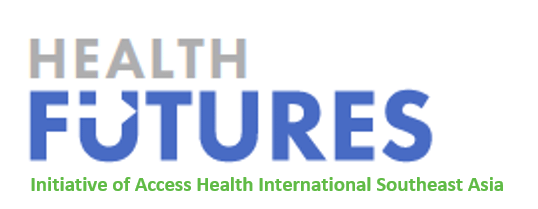On October 16-17, 2019, Sejal Mistry, Country Director at ACCESS Health Southeast Asia, attended the Primary Care 2030 Dialogue in Dubai, United Arab Emirates. Convened by the Center for Primary Care at Harvard University, the World Economic Forum, and the World Bank, the meeting brought together public, private, and non-profit stakeholders to discuss and propose actions to address primary health care challenges presented by the Ministry of Health of Vietnam and the Ministry of Health of Kenya. ACCESS Health Southeast Asia was invited to participate in this closed-door workshop to facilitate a dialogue and provide insights on the role of digital technology to strengthen primary health care systems, and achieve universal health coverage. Participants provided specific recommendations to the governments of Vietnam and Kenya.
A few notable perspectives from the 2-day workshop:
- Meaningful private sector engagement for Universal Health Coverage
Dessislava Dimitrova, the head of Health Systems Transformation at the World Economic Forum, described efforts by the World Economic Forum to connect companies to governments and international organizations to think through new and innovative ways to achieve healthcare access. To this end, the World Economic Forum private sector engagement platform will provide opportunities to encourage investments and action toward strengthening primary care. An excellent statement of guiding principles for private sector engagement for Universal Health coverage can be found here.
- Before countries commit to Primary Health Care, they need data.
The Primary Health Care Performance Initiative (PHCPI) is a global partnership to identify concrete indicators to track and measure national progress for primary health care. Beth Tritter, the Executive Director of PHCPI, described the current international effort to assist countries in developing a national profile to track progress on Primary Health Care. Primary Health Care Vital Signs profiles have been created to measure progress regarding four key domains: financing, capacity, equity, and performance.
Currently, there are twelve “trailblazer” countries (Malaysia and Sri Lanka, in Asia) that are developing comprehensive “Vital signs” profiles. All countries will eventually be able to request technical support and guidance from the World Health Organization to develop their own.
More information on PHCPI can be found at this site.
- Disruptive leapfrog innovative solutions are needed to close the Universal Health Coverage gap
Irina Nikolic, a global health specialist from the World Bank, presented the sober economic picture of health care, noting that global spending on health is estimated to be $7.7 trillion USD or 11% of the global GDP. A World Bank study showed that progress on universal health coverage was slow, and that under current efforts the universal health coverage gap cannot be closed. As such, the pre-eminent international organization on finance recognized that disruptive leapfrog innovative solutions are needed to make UHC a reality.
The World Bank is currently leading an effort to match digital health players with country systems with pre-identified problem statements. So far, they have tested this approach in India and Brazil and have noted that only private sector health facilities have taken up digital health partners, while their public health counterparts have not.






